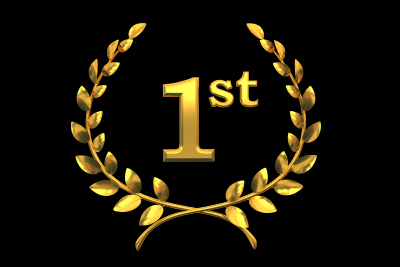Published on the 17/06/2015 | Written by Donovan Jackson

In what must have come as a considerable surprise to both Xero and SAP, market analyst IDC briefly named the cloud accounting vendor as the New Zealand market leader in enterprise resource planning software…
However, as careful observers will note, Xero and SAP don’t compete in the same market space, although there is some overlap in the financials – at least theoretically.
IDC’s initial press release, an update to the New Zealand Software Tracker 2H14, declaimed ‘Xero overtakes SAP to become largest vendor in New Zealand’s enterprise resource planning (ERP) software market in 2014’, prompting a wider question of just what constitutes ERP software today.
Typically, ERP software is vastly more complex and far-reaching than its accounting counterpart. That’s not to say that ERP software doesn’t have accounting at its core. It does. But SAP is a very different beast compared to Xero. The enterprise version has 26 core modules, each of which is further broken down into tens of sub-modules. When the entire SAP system of modules is laid out in a spreadsheet, it numbers over 500 components.
SAP is also available to run on a slew of environments and databases; it is more typically associated with big (and often, very big) companies, like airlines, motor manufacturers and the occasional New Zealand city. SAP also supplies three quite separate and distinct products addressing different sectors of the market.
Xero, on the other hand, is business accounting software; as a cloud-based SaaS solution, it has a single code base targeted at the small and medium businesses sector. In other words, notwithstanding the fact that SAP has, in recent years, introduced solutions which are targeted at the SME, Xero does not compete in the same market. Xero MD Rod Drury, responding to a query, was categorical: “Xero does not compete at all with SAP; if anything, we are complementary, as our software often feeds into SAP systems.”
Contacted by iStart, Simon Gomes, communications specialist at SAP ANZ, also agreed that IDC’s statement needed qualifying; “No, we don’t compete with Xero,” he said. “IDC was analysing a small subset of ERP – financial applications – and Xero’s growth in this environment.”
What did emerge from IDC’s Software Tracker is that overall, New Zealand’s software market grew by 6.5 percent YoY in 2014. Continuing this trend, it said the market is set to grow by a five year compound annual growth rate (CAGR) of 6.5 percent to reach NZ$1,791m in 2019. The ERP market, it said, was the source of most of the growth.
Mainly driven by cloud solutions, the financial application and human capital management markets (HCM) grew by 29.8 percent and 25.9 percent respectively in 2H14.
Although only offering financial application software in New Zealand, said IDC, Xero overtook the market leader SAP in terms of its share of the overall ERP market – where Xero moved to 20.7 percent market share in 2014, just ahead of SAP’s 19.4 percent.
In clarifying the statement, IDC spokesperson Melanie Disse had this to say about the accounting software provider: “The local ERP market has been widely disrupted by Xero, which is driving most of the growth in the local ERP market. Although Xero has only offered financial applications in New Zealand so far, it is rapidly climbing to the top of the New Zealand ERP market. It will be interesting to watch what is going to happen in 2015 when Xero starts offering payroll applications and inventory functionalities in NZ.”
Disse said IDC considers Xero to be an ERP vendor. “Xero only plays in the Financial Applications software market in New Zealand; however, this market is a sub-market of the overall ERP market, according to IDC taxonomy. Although only playing in this sub-segment, Xero managed to gain a substantial market share in this overall ERP market as well.”
Drury said that while Xero is accounting software, its broader ecosystem makes it an ERP solution for small businesses. “There are around 400 add-ons, so, for example, with Vend, we’re ERP for retail, with Unleashed, we’re ERP for wineries and other organisations with complex inventory. They [Xero clients] probably don’t see it as ERP, it’s just software they run their business on.”
The announcement was not clear on the methodology being used to calculate market share. iStart has requested clarification.



























